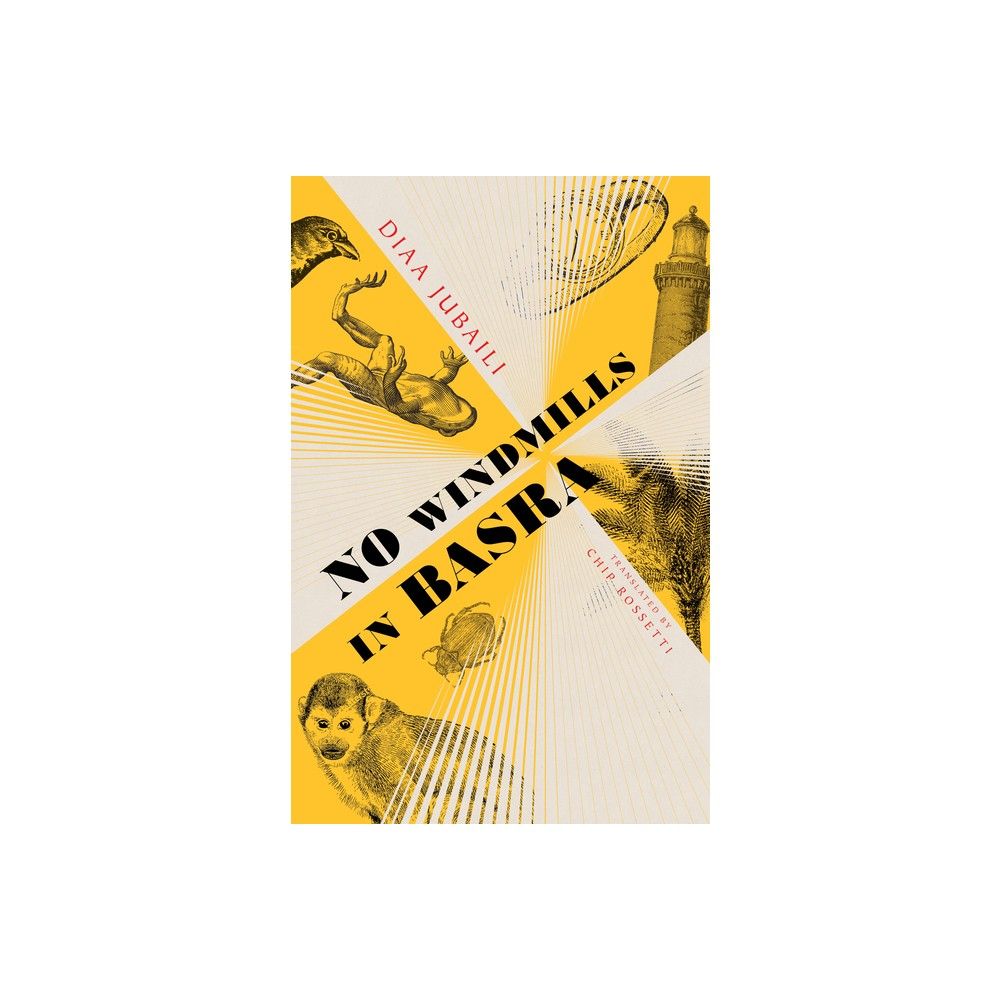Home
No Windmills in Basra - by Diaa Jubaili (Paperback)
Loading Inventory...
TARGET
No Windmills in Basra - by Diaa Jubaili (Paperback)
From Deep Vellum Publishing
Current price: $12.99


TARGET
No Windmills in Basra - by Diaa Jubaili (Paperback)
From Deep Vellum Publishing
Current price: $12.99
Loading Inventory...
*Product Information may vary - to confirm product availability, pricing, and additional information please contact TARGET
Book Synopsis A bold, imaginative collection of short stories set in Southern Iraq from prolific, award-winning novelist Diaa Jubaili. Influenced in turn by the long tradition of Arabic folktales and the magical realism of Latin America, the stories in No Windmills in Basra reflect a reality tinged by the citys history with war. Yet the fantastic and playful peek through, offering an astounding breadth of images in only a few lines per story. In Mubarak, a security guard for a chicken plant discovers his own wings after a bomb explosion. In The Taste of Death, long-buried Iraqi and Iranian soldiers rise from their unmarked graves, dissatisfied with the landscapes returning verdancy. Set in the southern Iraqi city of Basra, where the author still lives, these fleeting stories oscillate between whimsy and tragedy. Review Quotes Brilliant, fast-moving, joyously inventive tales--every one of them an arrow to the heart. --Ben Loory, author of Tales of Falling and Flying [In Diaa Jubailis stories, ] we find the defiance of a wide-ranging imagination that weaves everything that has gone before into brilliant short story texts, stories that are difficult to forget once youve read them... No Windmills in Basra impels readers to regard the world around them as narrative possibilities, as seeds for stories that demand a bold imagination like Jubailis. --Ahmed Saadawi, author of Frankenstein in Baghdad After a lengthy and many-sided debate, the panel has unanimously concluded that the most deserving winner is the Iraqi writer Diaa Jubaili for his collection No Windmills in Basra , the texts of which range between very short stories to longer ones. It deals with the subject of war in a way that combines realism and fantasy. With a sardonic narrative style, he has made war the subject of a great question with an importance that runs from mockery and nihilism to a sincere desire to be rescued from the absurdity of death. The stories in the collection observe the repercussions to Iraq of three wars, starting from the Iran-Iraq War, through the Gulf War to the wave of extremism that Iraq still struggles with today. --Judges Panel, Almultaqa Short Story Prize The short story collection No Windmills in Basra by Diaa Jubaili abounds in a noticeably striking diversity across its numerous texts... He can throw a surprise punch at the end of each text... A diverse and abundant tour dhorizon of plots and themes through various places and times, and through different characters as well, in diverse literary modes. -- Al-Sabah al-Jadid These are stories from Iraq, where an Iraqi cannot be a Don Quixote. He is not allowed to escape his recent past, his present, or the tension of his uncertain future. There is no space to do battle with delusions, no existence other than for agonizing truths, and no scope to stray far from a tragic reality... -- A l-Akhbar Most of the stories depend on irony, thanks to their deceptively simple language, and their attempt to draw the reader to remote and difficult-to-access worlds, such as the world of childhood, or to womanhood, motherhood, and other situations, like war and love, and in a style that sometimes veers toward sarcasm and mockery, but that also confronts great questions via critical insights on the tongues of dreaming children, defeated women, and men swallowed up by oblivion, those who have no one to remember them other than stories. -- Al-Dustur His recently winning collection--which is to be commended for its skill and cunning, its intimations and shadings--entangles us in the enjoyable process of discovering an author with abundant skills in narrative and storytelling... [I]n many of the 76 stories across 176 pages, he surprises you with clever endings that seem like creative jolts... The stories themselves have a visible radiance and liveliness in their structure, and in their expressions that clamor with meanings, when they turn their attention to the interiors of characters, where there is pain and hope, confidential secrets and confusion, tension and feeling, where there are rivers of emotions, in the moments of waiting for a prisoner who never returns, or a soldier going to war, or the death by bombardment of cultivated fields. -- Al-Araby The reader may not find anything to laugh about in these stories, but at the same time, About the Author Diaa Jubaili was born in 1977 in Basra, Iraq, where he still lives. He is the author of eight novels, including The Curse of the Marquis , which won the Dubai Magazine Award, and three short story collections, including What Will We Do Without Calvino? , winner of the Tayeb Salih International Award for Creative Writing, and No Windmills in Basra , winner of the Almultaqa Prize for the Short Story. He was a contributor to the short story collection Iraq +100 and has written for the Guardian . Chip Rossetti has a Ph.D. in modern Arabic literature from the University of Pennsylvania, and wrote his dissertation on the contemporary Iraqi writer Muhammad Khudayyir. His published translations include the novel Beirut, Beirut by Sonallah Ibrahim; the graphic novel Metro: A Story of Cairo by Magdy El Shafee; and Utopia by Ahmed Khaled Towfik. His translations have also appeared in Asymptote, The White Review, Banipal , and Words Without Borders . He has worked in book publishing for over twenty years, and is currently the Editorial Director for the Library of Arabic Literature at New York University Press.






